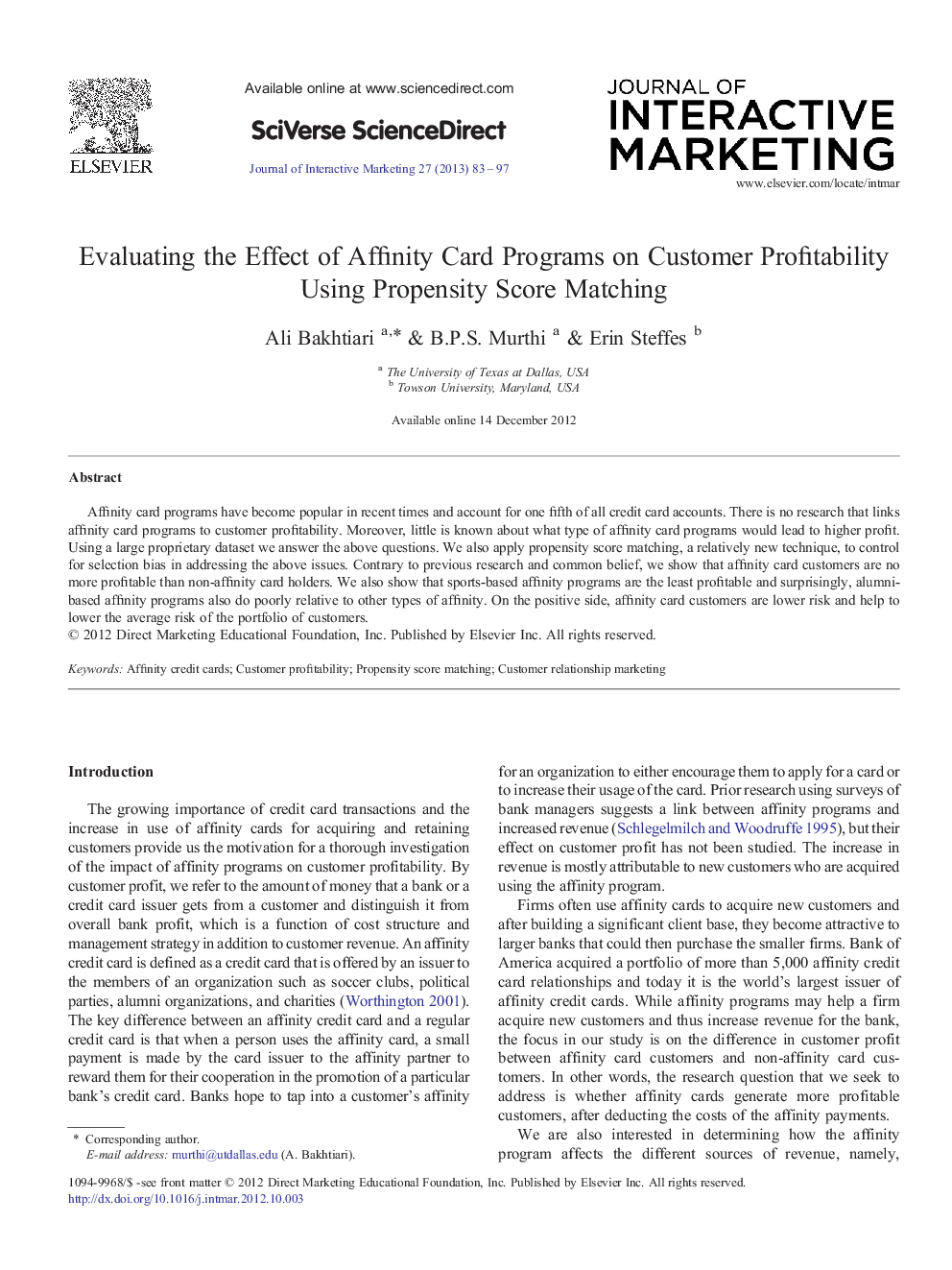| Article ID | Journal | Published Year | Pages | File Type |
|---|---|---|---|---|
| 886033 | Journal of Interactive Marketing | 2013 | 15 Pages |
Affinity card programs have become popular in recent times and account for one fifth of all credit card accounts. There is no research that links affinity card programs to customer profitability. Moreover, little is known about what type of affinity card programs would lead to higher profit. Using a large proprietary dataset we answer the above questions. We also apply propensity score matching, a relatively new technique, to control for selection bias in addressing the above issues. Contrary to previous research and common belief, we show that affinity card customers are no more profitable than non-affinity card holders. We also show that sports-based affinity programs are the least profitable and surprisingly, alumni-based affinity programs also do poorly relative to other types of affinity. On the positive side, affinity card customers are lower risk and help to lower the average risk of the portfolio of customers.
► We study the relationship between affinity credit cards and customer profit. ► We use propensity score matching (PSM) to control for selection bias. ► Affinity card customers do not generate higher profits or transaction amounts. ► Affinity card customers do have a lower delinquency risk. ► Sports-based and alumni-based affinity cards have the lowest average profit.
